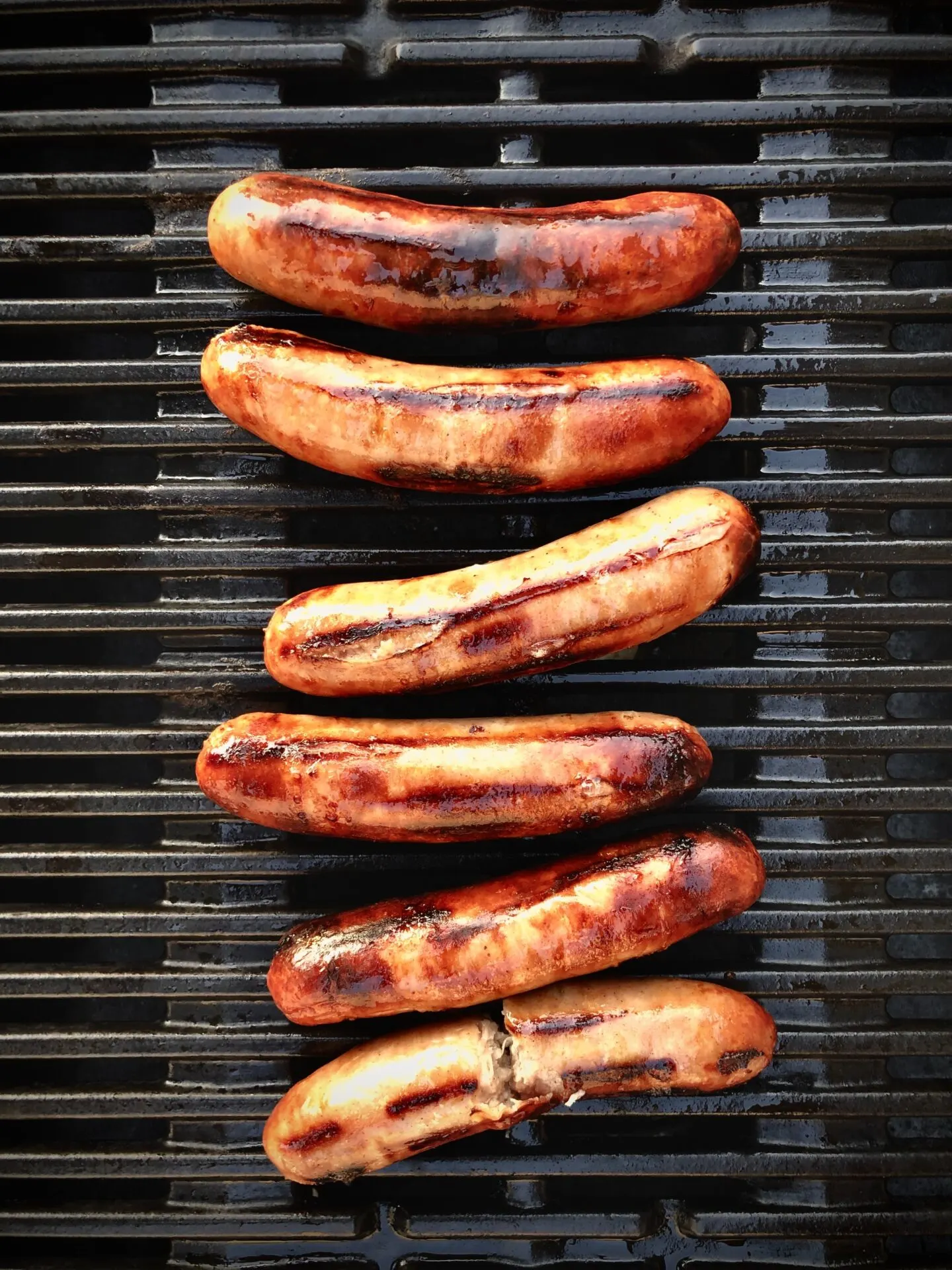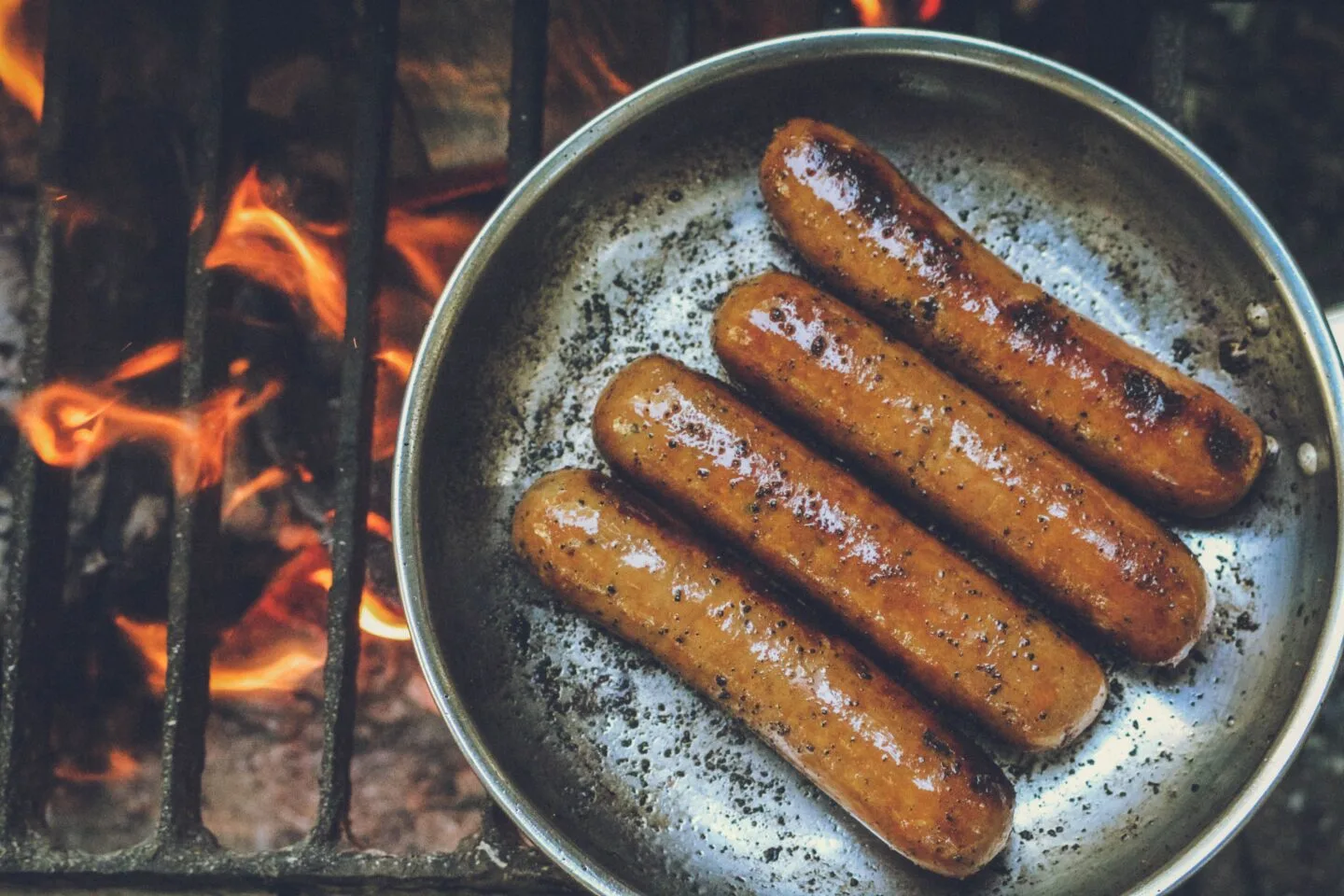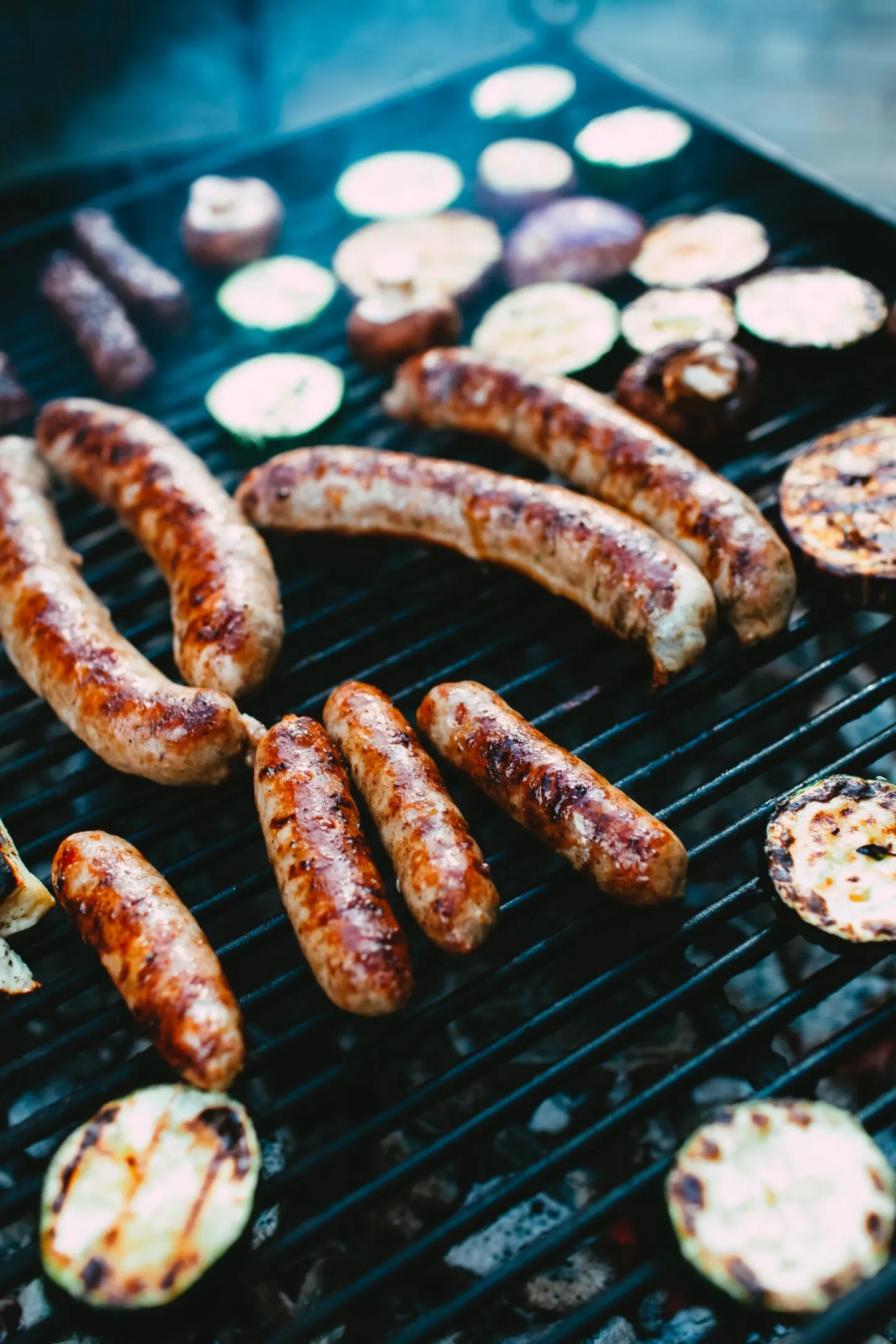Weaning is an exciting time in a baby’s life, and also in a parent’s life too. Many parents want to introduce their children to as many foods as possible, but it’s important to remember that not all foods are safe for babies to consume. I am often asked, “can babies eat sausages?” and although it may seem like a harmless way to incorporate meat into your baby’s diet, sausages are actually extremely high in salt and should be avoided.
The official NHS guidelines state that sausages contain too much salt and eating too much of this at a young age can cause kidney damage.

Foods to avoid giving babies and young children.
Eating sausages at a young age should be avoided, but if you want to know when can babies eat sausages, it would be best to wait until they are around 12 months old before serving small portions as part of a balanced diet.
Sausages are not the only food that parents and carers should avoid giving babies. The following foods should not be given to young babies:
- Salty Foods
- Sugary Snacks
- Soft Cheeses That Could Contain Listeria
- Honey
- Raw Shellfish, Shark, Swordfish or Marlin
- Whole Nuts and Peanuts
- Fresh Pate
Let’s take a closer look at these foods in order to understand why they’re not suitable for young babies.
Salty Foods
As previously mentioned when considering the question “can babies eat sausages?”, salty foods can pose a serious risk to your baby’s health.
When introducing your baby to their first foods, you should avoid giving them any foods that contain high levels of salt, you should also avoid adding salt to their meals or cooking with additional salt.
Foods such as bacon, sausages, chips, crisps, and salted crackers should be avoided, as well as ready meals and takeaways.
Sugary Snacks
Babies do not need sugar and it’s not necessary to offer them sweet treats or snacks. When making food for your baby there’s no need to add sugar to meals and recipes either.
Sugary snacks can cause tooth decay in babies, therefore sweet treats and sugary drinks, such as fruit juice and squash, should be avoided.

Soft Cheeses That Could Contain Listeria
It’s not just “can babies eat sausages?” that parents should be asking as there are several other protein sources that should also be avoided during the first few years of your child’s life.
Pasteurised cheeses such as cheddar cheese and cream cheese are fine for your baby to eat, however, you should avoid unpasteurised and mould-ripened cheese such as brie and camembert.
Young babies and children should also not eat blue-veined cheese such as Roquefort. With that being said it is possible to offer your baby unpasteurised cheeses safely by cooking them, as this kills off the listeria.
Honey
Asking “can babies eat sausages?” may not have yielded the results you expected – after all, they are such a common food among UK households. The same can be said for honey.
As well as being a source of unnecessary sugar, honey can also contain bacteria that produce toxins in your baby’s intestines. This can lead to a serious illness called infant botulism, therefore you should not offer your baby honey, until they’re over the age of 1.
Raw Shellfish, Shark, Swordfish or Marlin
Fish can be a fantastic source of vitamins and minerals for babies and young children. However, as we spoke about when we discussed fish fingers as a first food for babies, there are some varieties of fish that are unsuitable for children.
Shark, swordfish, and marlin all contain high levels of mercury which can affect your baby’s nervous system; for this reason, it’s imperative that you do not give your baby these species of fish to eat.
Raw shellfish should also be avoided due to the potential risk of food poisoning.
Whole Nuts and Peanuts
It is not advisable to offer any child under the age of 5 whole nuts; this is because they pose a major choking hazard. You are, however, able to offer your child nut butters and ground nuts.
If there’s a history of nut allergies in your family, you may wish to first seek advice from your health visitor or GP before introducing any nut products into your baby’s diet.
Fresh Pate
Along with answering common queries such as “can babies eat sausages?” we’ve also answered other baby led weaning questions on our blog. Another common question we’ve received is Can Babies Eat Pate? Although officially there are no real guidelines to state whether or not pate should be offered to young babies, it should be noted that fresh pate is best avoided due to the risk of food poisoning.
Sausages are considered a choking hazard.
Another reason that the NHS advises against offering sausages as a first food is due to the high risk of choking. How can babies eat sausages then if they pose a choking hazard?
Well, if you still want to offer your baby or young child sausages with their meal, it’s imperative that you take into consideration not only the size and shape of the portions but also the sausage skin.
Before offering your child sausages, you should first remove the skin as this is a major choking hazard. You should then be sure to slice sausages lengthways into sticks rather than slicing them horizontally.

Alternative sources of protein to offer young babies and children.
Although the answer to “can babies eat sausages?” may not have been the one you’re looking for, worry not as there are plenty of other protein-packed foods that are great for your child to eat from the age of 6 months. The NHS recommends different kinds of meat for babies, including:
- Chicken
- Turkey
- Lamb
- Pork
- Beef
The NHS also recommends babies and young children eat other protein sources aside from meat, including:
- Boneless fish
- Lentils
- Tofu
- Beans
- Eggs
- Pulses

Conclusion
Today’s post has answered the commonly asked question, “can babies eat sausages?”, and delved into why feeding your young child salty meats such as sausages and bacon isn’t considered a good idea.
Alongside salty foods, we established that the NHS advises that there are several other food types that should be avoided as they can also pose health risks to your children. For more information about baby-led weaning and first foods, check out our Baby Led Weaning archive.
